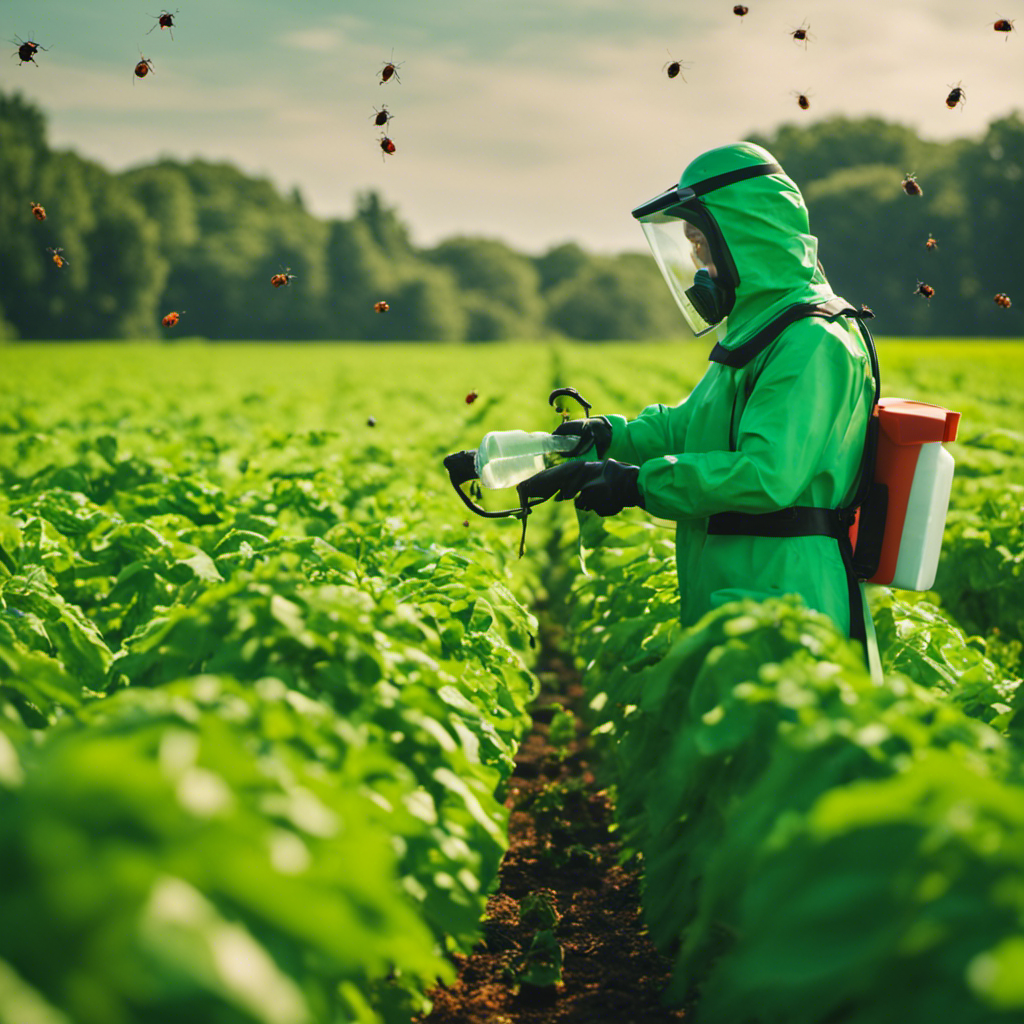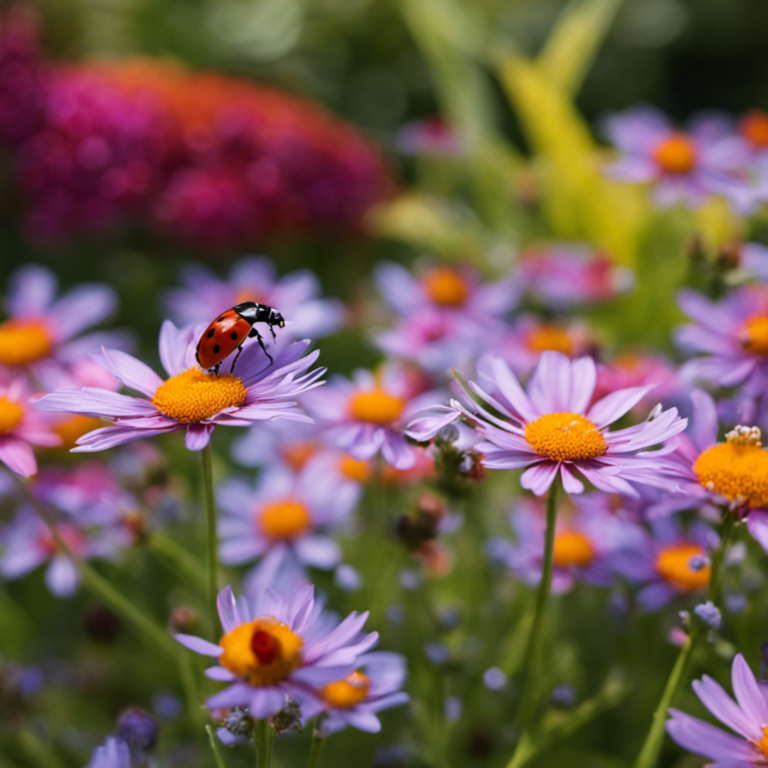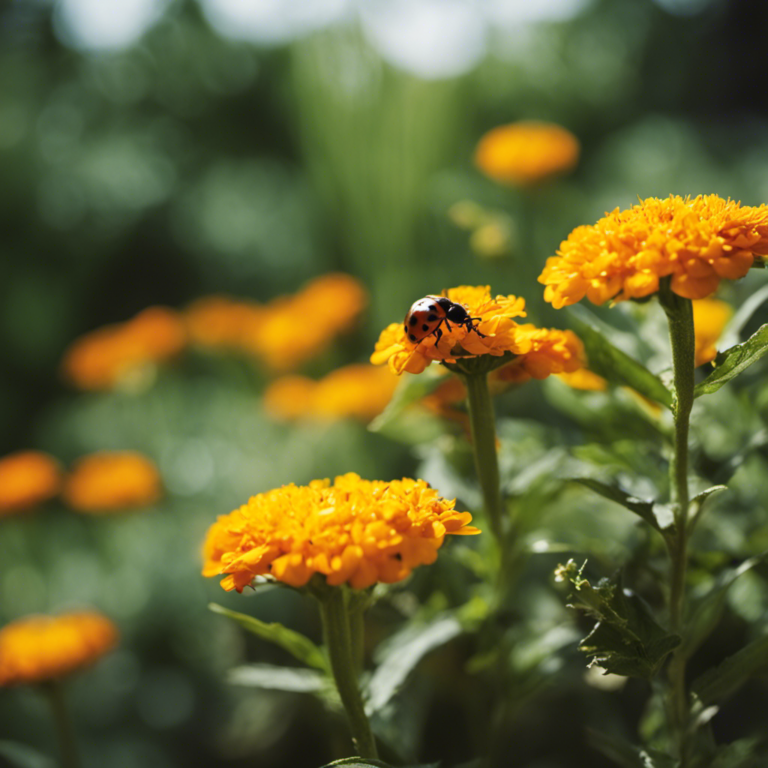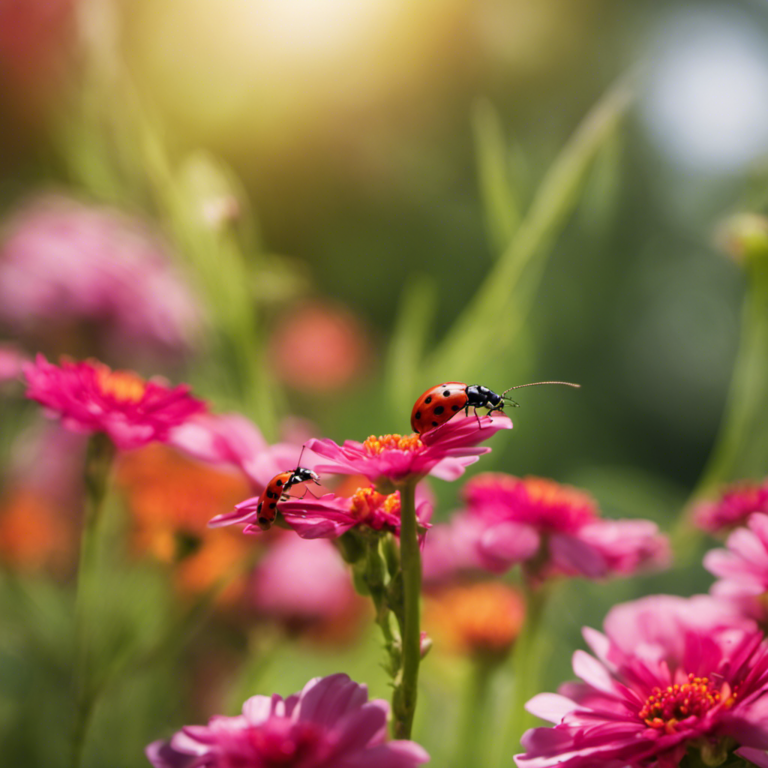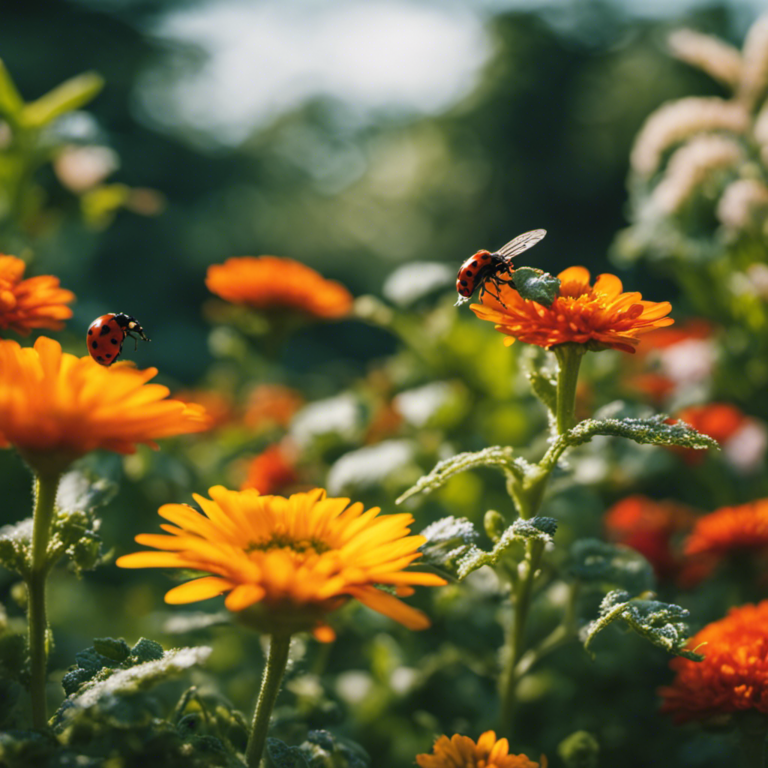Revolutionize Farming with Environmentally Friendly Pest Control Methods
Are pests wreaking havoc on your crops? Imagine a farming revolution where you can effectively combat these pests in an eco-friendly manner.
By utilizing natural predators, biological agents, physical barriers, organic pesticides, and crop rotation, you can safeguard your crops without causing harm to the environment.
In this article, we will explore how these innovative pest control methods can transform farming practices and enable you to contribute to a safer, more sustainable, and abundant harvest.
Prepare to revolutionize your approach to farming and make a positive impact on our planet.
Key Takeaways
The pest control methods discussed in this article have the potential to significantly improve the farming industry. By using natural predators, biological control agents, physical barriers, organic pesticides, and crop rotation, we can transform how we handle pests in agriculture.
This approach not only effectively protects crops but also promotes sustainable farming practices that are environmentally friendly.
It’s time to move away from traditional pest control methods and embrace this innovative revolution in farming.
Natural Predators for Pest Control
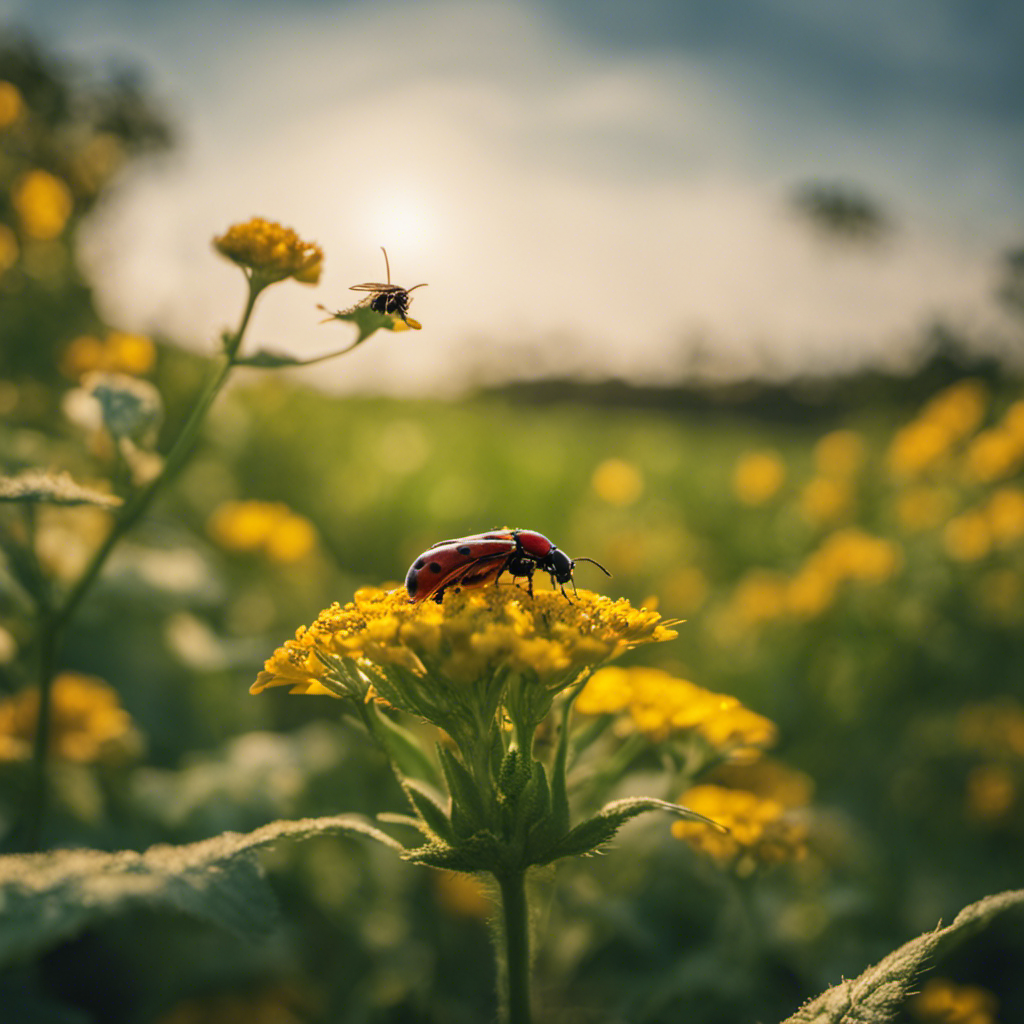
Inviting natural predators into your farm is an effective way to control pests. Integrated pest management and sustainable farming practices emphasize the importance of using natural methods to control pests rather than relying solely on chemical pesticides.
By encouraging the presence of natural predators like ladybugs, lacewings, and birds on your farm, you can establish a balanced ecosystem where they help regulate pest populations. Ladybugs, for example, consume aphids, mites, and other harmful insects, while lacewings prey on pests such as caterpillars and aphids. Birds, on the other hand, have a diverse diet that includes insects, and you can attract them to your farm by providing suitable habitats.
Biological Pest Control Agents
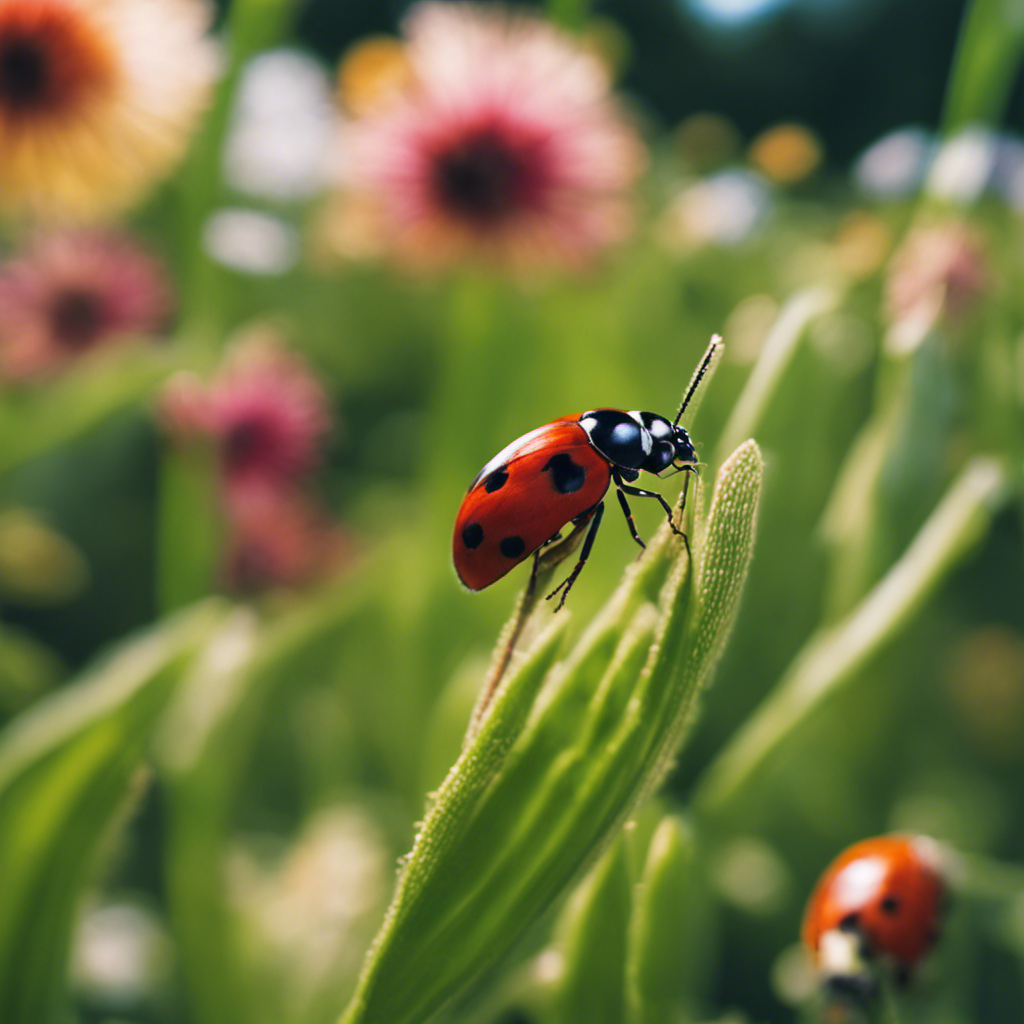
To enhance your eco-friendly pest control methods, consider using biological pest control agents in your farming practices.
Biological pest control agents are living organisms that naturally help control pests, without the need for harmful chemicals. These agents can include beneficial insects like ladybugs and lacewings, which feed on pests such as aphids and mites. Nematodes, which are microscopic worms that infect and kill pests in the soil, as well as bacteria and fungi that control plant diseases caused by pests, are other examples of biological control agents.
By incorporating these agents, you can reduce your reliance on synthetic pesticides and promote sustainable farming practices.
Integrated pest management, which combines biological controls with other pest control methods, can effectively manage pests while minimizing environmental impact.
Physical Barriers for Pest Prevention
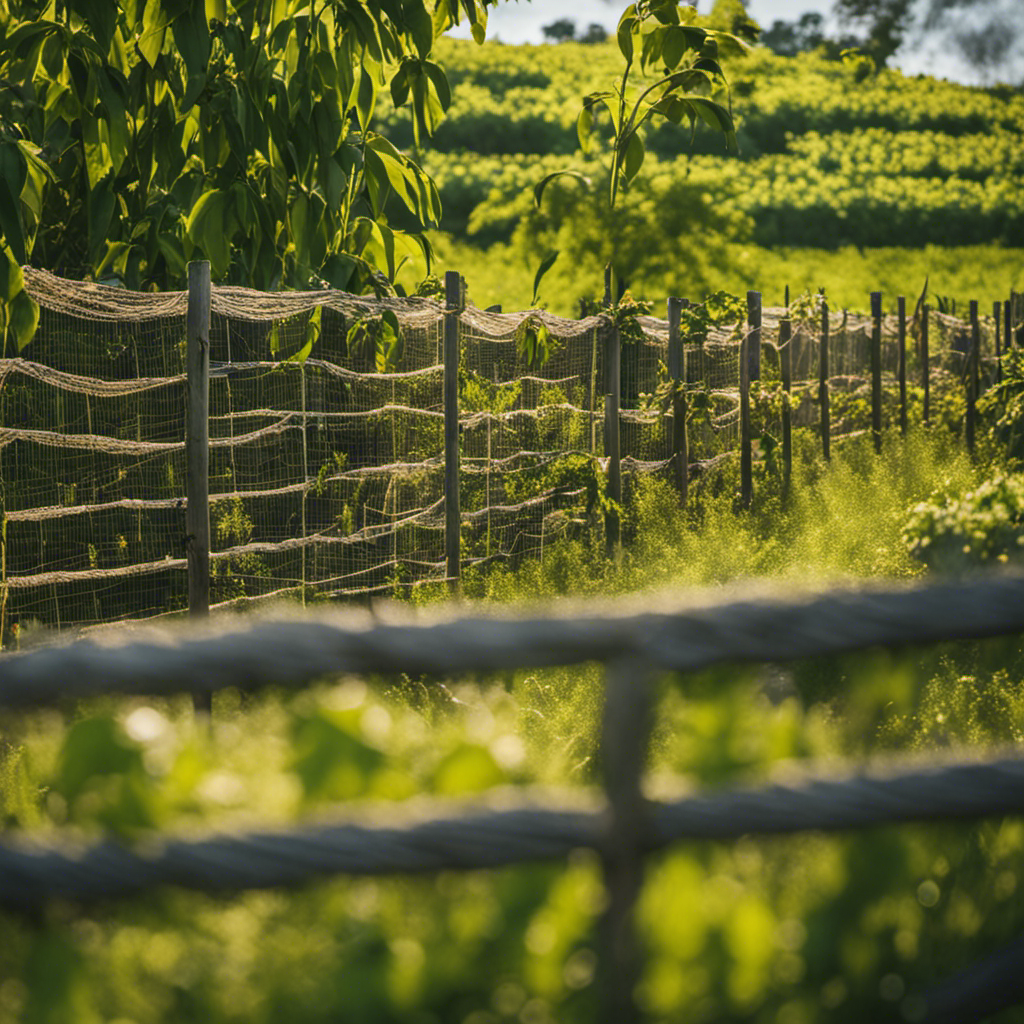
Installing mesh screens or fences around your crops is a practical and effective way to prevent pests from damaging them. Physical barriers play a crucial role in integrated pest management and sustainable farming practices. They create a protective shield, blocking pests from accessing your crops.
Let’s explore the benefits and types of physical barriers in more detail:
Benefits of physical barriers:
- By preventing direct contact between pests and crops, physical barriers significantly reduce the risk of infestation.
- They minimize the need for chemical pesticides, promoting eco-friendly farming practices.
Types of physical barriers:
- Mesh screens: These can be used to cover crops, effectively preventing insects and small animals from reaching them.
- Fences: Erecting fences around your fields acts as a deterrent for larger animals like deer or rabbits, keeping them away from your crops.
Implementing physical barriers not only safeguards your crops but also reduces reliance on harmful pesticides, contributing to a more sustainable and environmentally friendly farming system.
Organic Pesticides and Insecticides

Continuing the discussion from the previous subtopic, let’s explore the use of organic pesticides and insecticides as a more environmentally-friendly pest control method for improving farming practices. Organic farming offers many benefits, including the use of natural alternatives to chemical pesticides. These alternatives are derived from plants, minerals, and bacteria, making them safer for the environment and human consumption.
Organic pesticides and insecticides work by disrupting the life cycle of pests or repelling them from crops. They have been proven to be effective against a wide range of pests, including insects, fungi, and weeds. Additionally, these organic options have minimal impact on beneficial insects and organisms, preserving biodiversity in the ecosystem.
To provide a better understanding, here is a table showing some popular organic pesticides and the pests they target:
| Organic Pesticide | Target Pests |
|---|---|
| Neem oil | Aphids, mites, and other insects |
| Bacillus thuringiensis | Caterpillars and other larvae |
| Pyrethrum | Mosquitoes, flies, and other insects |
Crop Rotation for Pest Management

Rotate your crops for effective pest management. Crop rotation is a technique used in sustainable farming practices and integrated pest management to control pests naturally. By changing the crop planted in a specific field each growing season, you disrupt the life cycles of pests, making it harder for them to survive and reproduce.
Here are two ways crop rotation helps in pest management:
-
Pest reduction:
- Different crops attract and repel different pests. By rotating crops, you can discourage the buildup of pests that target specific crops.
- Certain crops, like legumes, have a symbiotic relationship with nitrogen-fixing bacteria. By rotating legumes with other crops, you can improve soil fertility and create an unfavorable environment for pests.
-
Disease prevention:
- Crop rotation helps break the cycle of diseases that can be specific to certain crops. By planting different crops, you reduce the risk of buildup and spread of diseases.
- Rotating crops also allows the soil to recover from diseases, as different crops have varying nutrient needs and can help restore soil health.
Implementing crop rotation is an effective way to manage pests while promoting sustainability in your farming practices.
Conclusion
The eco-friendly pest control methods discussed in this article have the potential to revolutionize the farming industry. By utilizing natural predators, biological control agents, physical barriers, organic pesticides, and crop rotation, we can completely transform how we handle pests in agriculture.
This innovative approach not only protects crops effectively but also promotes sustainable farming practices that are environmentally friendly.
It’s time to say goodbye to traditional pest control methods and embrace this game-changing revolution in farming.
